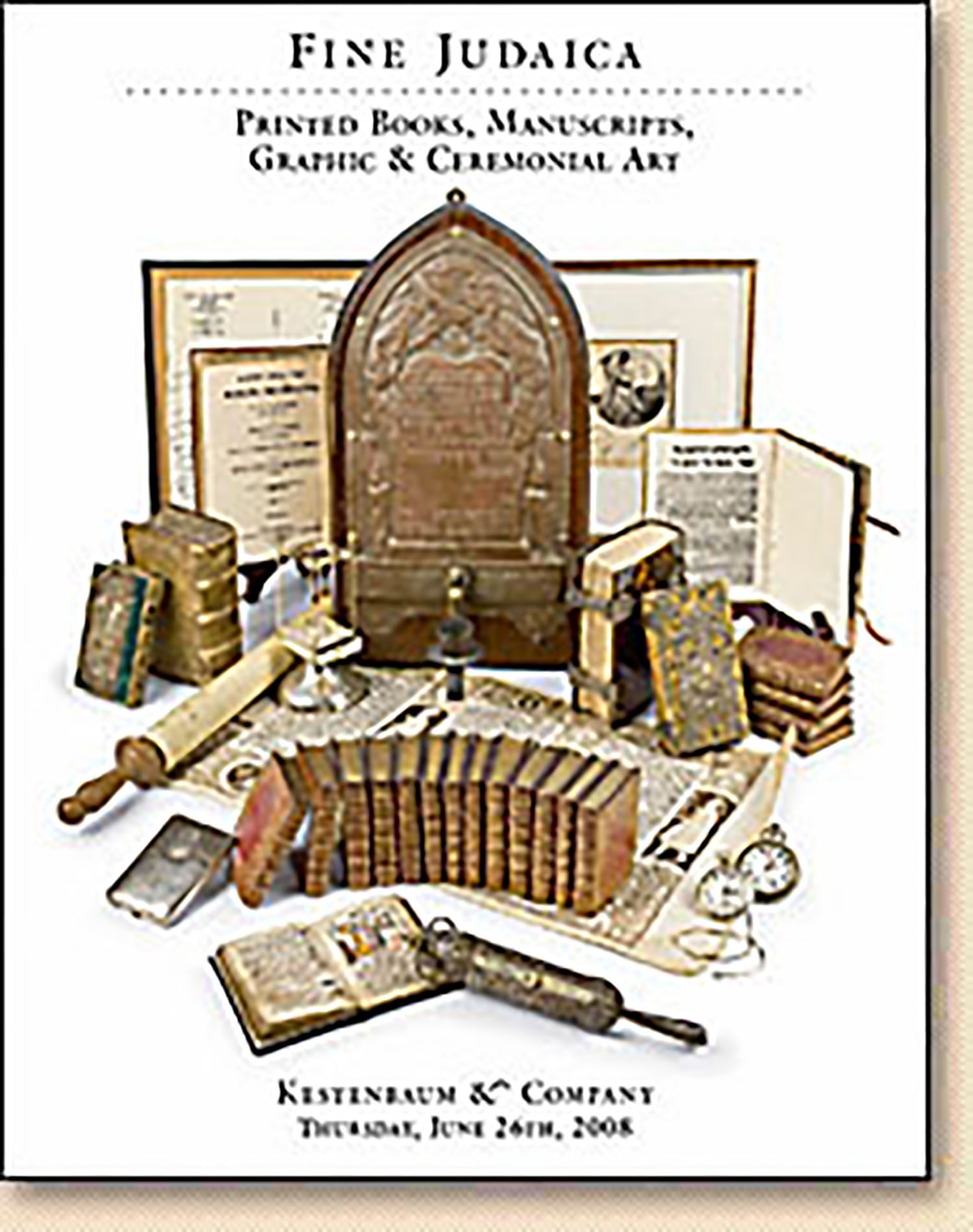Aaronsohn, Moses. Mata'ei Moshe [sermons, responsa and commentary to Song of Songs]

AUCTION 40 |
Thursday, June 26th,
2008 at 1:00
Fine Judaica: Printed Books, Manuscripts, Autograph Letters, Graphic & Ceremonial Art
Lot 31
(AMERICAN JUDAICA)
Aaronsohn, Moses. Mata'ei Moshe [sermons, responsa and commentary to Song of Songs]
Jerusalem: Joel Moses ben M. Salomon 1878
Est: $1,000 - $1,500
Born in Salant, Lithuania in 1805, Moses Aaronsohn migrated in 1860 to New York, where he served as Rabbi of the Adath Yeshurun synagogue on Allen Street. He died in Chicago in 1875. Aaronsohn’s intention of settling in the Land of Israel was fulfilled by his widow and sons. It was they who brought the manuscript of Mata'ei Moshe to Jerusalem, where it was published. Following a biographical sketch of the Author, the work contains several responsa reflective of the turbulence of Jewish life on New York's Lower East Side.
On ff.53v.-54r. appear responsa from the Chief Aschkenazic Rabbi of Jerusalem, R. Samuel Salant and from R. Jacob Tzvi Mecklenburg of Koenigsberg addressed to Rabbi Aaronsohn in New York concerning the impermissibility of meat from cattle which have been bloodlet ("hakazath dam") before the actual slaughter. On f.54v. the Author's son attests that similar responsa were received from Rabbis Solomon Kluger, Brody; Isaac Dov Bamberger, Wuerzburg; Eliezer Halevi Horowitz, Vienna; and [Samson] Raphael Hirsch, Frankfurt - all forbidding the practice. Aaronsohn's lengthy responsum in the matter, "Teshuvath Eglath Beith Aven" appears on ff.9r.-13v.
Responsum 8 (ff.19v.-21r.) is addressed to the Jewish community of Baltimore concerning the fall of a Torah scroll from the Holy Ark.
On f.25r. the Author mentions the founding of the Allen Street Synagogue.
Responsa 12-13 (ff.26v.-38r.) represent an exchange with the renowned Polish halachist (and Chassidic Rebbe) R. Abraham [Landau] of Tchechanow, as to how to draft a bill of divorce (get) in New York. On f.34r. there is discussed the proper Hebrew orthography of "New York." This is without doubt one of the earliest halachic discussions of the formula for writing a Get in New York. In addition, it is probably the earliest communication from a Chassidic Rebbe to America.
See I. H. Sharfman, The First Rabbi - Origins of Conflict between Orthodox & Reform: Jewish Polemic Warfare in pre-Civil War America (1988), pp. 463 (facs. of title page), 596-7.
